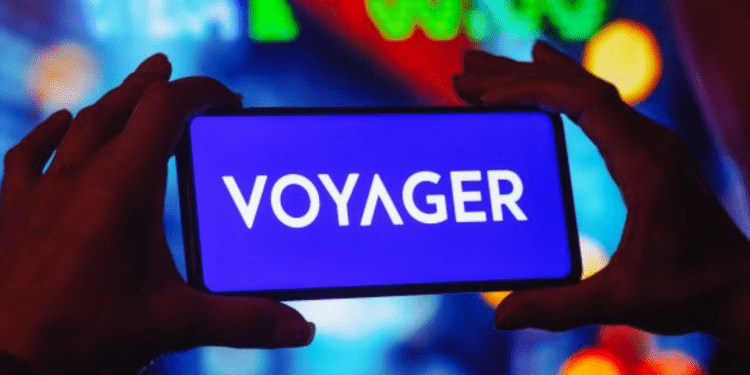- Voyager creditor requested a chapter 11 trustee to be present at the trial.
- The crypto lender has been accused of financial statement inaccuracies and public misinterpretations.
- In financial reports, Voyager allegedly understated its loan positions by over $1 billion.
Crypto lender Voyager Digital is on the verge of losing its estate after a creditor demanded that a Chapter 11 trustee be present in the ongoing bankruptcy trial.
While the debtor, Voyager, is typically appointed as the trustee in a chapter 11 case, the law allows for trustees to be assigned if specific criteria are met.
One is if there are “reasonable reasons to suspect” that the trustee is not acting in the best interest of creditors and equity security holders, among others.
In a motion filed on February 1st, Michelle D. DiVita accused Voyager of financial statement inaccuracies, and public misinterpretations brought to light when the bankruptcy proceedings began.
Key Allegations in the Voyager-DiVita Filing
Shigo Lavine, a former Voyager director, highlighted some key allegations in the filing on Twitter.
According to the preliminary statement, Voyager Digital self-appointed a committee to oversee the investigation and remained in charge of its estate despite the findings.
The crypto lender then initiated a plan to sell “all of its assets to its largest shareholder, borrower, and lender that would return a majority of cryptocurrency to customers shortly after its December 2022 confirmation hearing.”
After the plan fell through, Voyager proposed another agenda, resulting in the failed AlamedaFTX transaction, which left creditors with losses of around $100 million.
Nevertheless, Voyager continued to propose extensive releases with apparently little regard for those releases. This is even though a state agency found support for three $40 billion charges of securities fraud.
Voyager-3AC Master Loan Agreement
The Voyager-appointed committee focused on the 3AC loan, solely uncovering insider culpability in the breach of the duty of care by Stephen Ehrlich (CEO) and Evan Psaropoulos (CCO).
Yet, before discussions with 3AC, Voyager modified its customer agreement to shift the risk of lending activity to customers. But customers needed to be informed of the new update that changed how their crypto assets would be treated in the event of a default.
The motion also alleges that Voyager severely underreported the 3AC loan balance on public financials.
In its financial report disclosed on March 31st, 2022, Voyager reported its loans to be $2.2B. However, its loans were disclosed the next day to be $3.1B.
The crypto lender undervalued its BTC holdings to underreport crypto loans. Its financial report stated $7,046.25/BTC, later revealed at a market price of $45,538.68.
In all, Voyager has been accused of hiding its lending activities by understating its loan positions by over $1 billion in financial reports. This is in addition to other issues, including the CEO’s claim of not having substantial assets and breach of “duty of care.”














